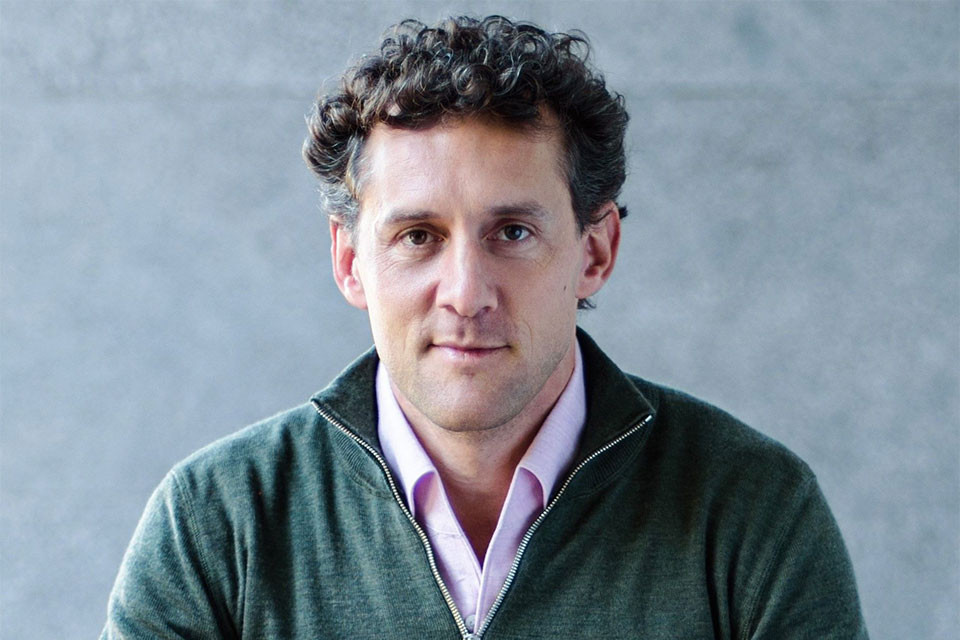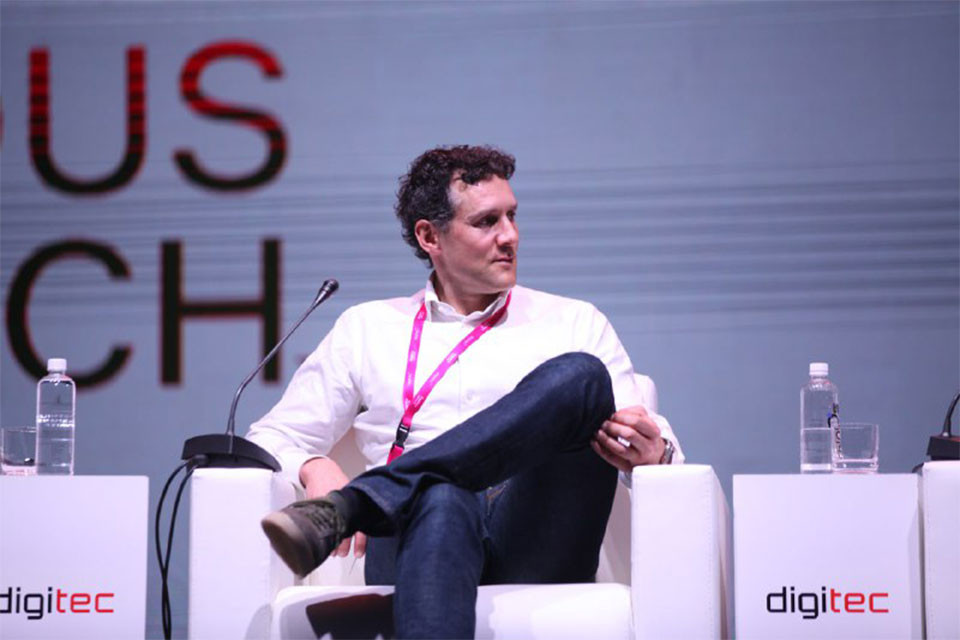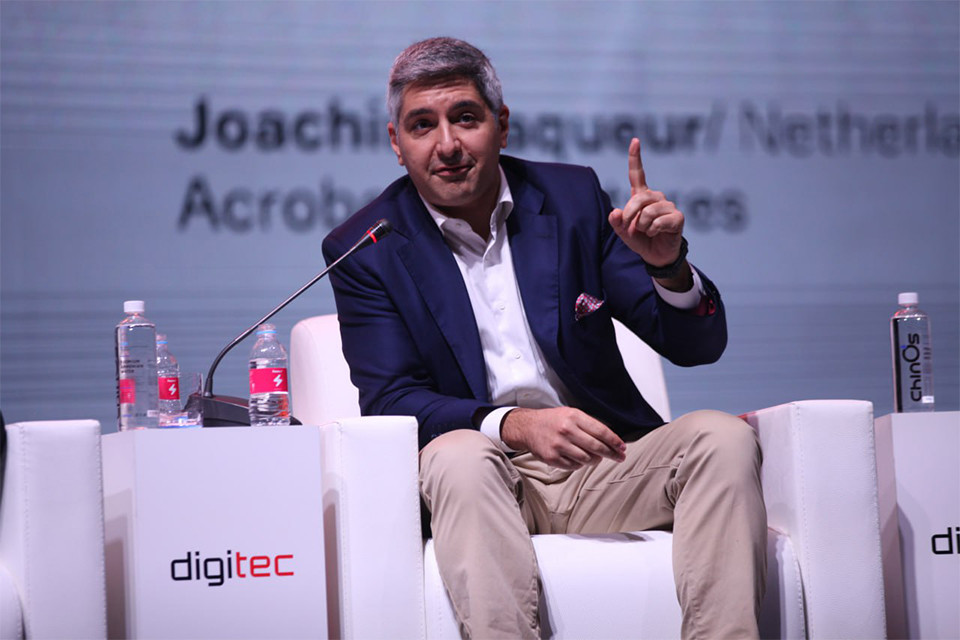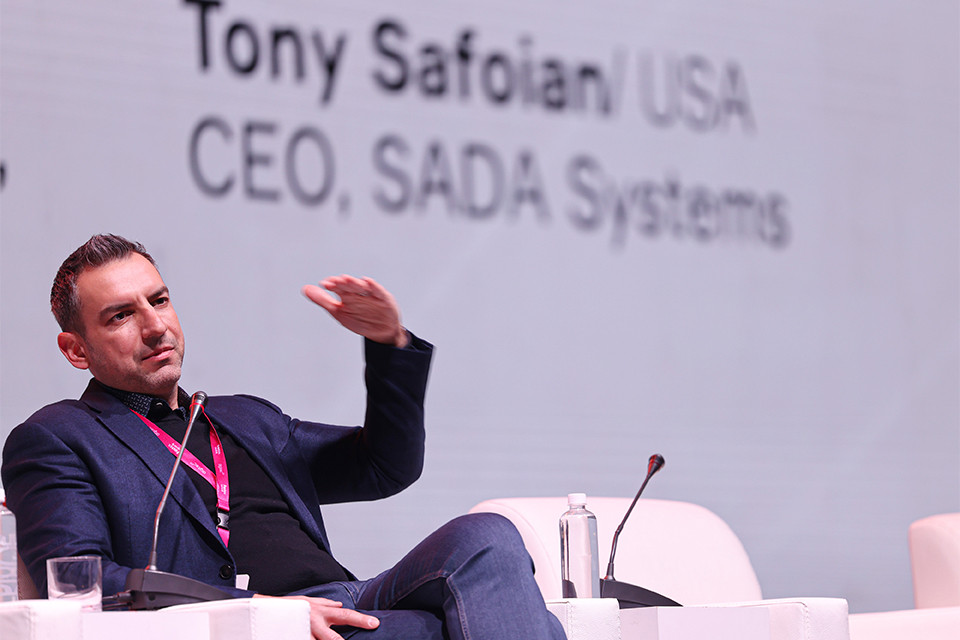-

Joachim Laqueur
-

Joachim Laqueur
17:50 | 04.04.23 | Interviews | exclusive 71231
Joachim Laqueur: Focus on making a company that is sustainable
Before co-founding Acrobator Ventures, Joachim Laqueur worked in consulting and finance and as a founder of various (some failed) ventures. From a product test to the launch of a Red Bull beverage competitor in Italy to a biofuel production factory in Austria to turning around two companies out of bankruptcy in the Netherlands, and finally advising MVP-stage startups from the Silicon Forest (Portland, Oregon), his generalist role becomes apparent.
iTel.am spoke with him about the collaboration with Armenian startup founders and investment market changes.
This is your second visit to Armenia. What did you see here, and what interesting trends have you noticed? What interested or attracted you here?
It was last year I was here, not too long ago, and I don’t think a lot has changed since our first investment in EasyDMARC till today. In general why we are interested in Armenia specifically because of the combination of really good technical talent technically and very strong international support network through the diaspora, which is incredibly important. The software companies that want to scale globally and to have a network that you can rely on when you need advice or you want to go to certain markets are incredibly valuable. So that is why we really like the Armenian tech ecosystem.
During Digitec, the quality speakers impressed me here. For instance, the founder of Moderna Noubar Afeyan and also the ambassadors were here. It was interesting for me to meet them outside of the conference at dinners and speak more on a private level. They are open, it is clear what their intentions are and the possibilities they see here in Armenia. It is nice to see everything from small startups to the biggest ecosystem members. And also it is nice to see all of these co-founders and founders of the big companies are actively investing in and helping smaller companies.
You have already had an experience of cooperation with Armenian startup founders, you've made an investment in EasyDMARC. Will you share with us that experience of working with Armenian founders?
We’ve done investments in EasyDMARC and also in another company Hexens, cybersecurity for crypto infrastructure. I think what is characteristic of the investment in EasyDMARC is that there is a very big focus by the founders on the relationship between founder and investor. The first focus is not on valuations or anything, but on the relationship between us. And I think it is very healthy and important. They say investments sometimes last longer than marriages. So you better pick your partner right. It is at least for 5 to 10 years. It is something we appreciate very much.
I don't know if that is purely an Armenian thing, we see similar things with our Ukrainian investments.
And also Armenia has a strong Diaspora. One of the things that stands out is a very welcoming is culture. The feeling that once you are accepted then everybody accepts you with open arms, and that is really cool.
The investment industry has undergone significant changes in the sense of the valuations over the past 2 years, how did it affect you? And how should Venture funds deal with this?
It is not healthy for a company to exist without actually being able to make a profit. So I think what is happening now is very healthy and will kill many unhealthy companies, which is good in the long run. Let me explain.
Because people go through bad experiences they learn a lot. For example, if you and I have started a company and it fails then we learn about it and the second time we don’t make those same mistakes. So it is a healthy process, unfortunately not painless, it is just the way things are.
So how it affected us. Very openly, the new investments we are doing are interesting as we pay less for the same company. For some of the existing investments that we have, things are sometimes hard. It means that some more companies have trouble raising money now or trouble raising money at a valuation that is higher than before. When this happens you have to get creative.
In the sense of these changes what advice do you have for the startup founders who want to apply for venture funds?
My advice is don’t focus too much on ownership, but focus on making a company that is sustainable. In general we deal with people that are between 25-35. So let’s say for most of them, this is their first company, and they are forced to raise a round with a lower valuation. That is not the end of the world. Even if you end up with lower ownership, maybe you can hit a certain target and get shares back. Even if that doesn’t happen, run your company, make it successful, solid and go to do something again.
 Joachim Laqueur
Joachim Laqueur
I think the focus on “I don’t want to give too many shares” is wrong. Focus should be on building a viable company. Extreme example: It is much better to own 5 percent of something really valuable, than 50 percent of something that is nothing. From our perspective, we would put in place a structure where founders can get back a lot of shares if they face high dilution due to bad market circumstances when we invest. It’s important to align the interests of all stakeholders.
Are new investments expected in companies of Armenian origin, what opportunities do you see here?
Yes, I don’t know which ones yet. We are actively investing and we are also still making new investments in Ukraine. We were raising our fund in the US and they said that it is pretty cool what we do and invest in those regions, but they said we have a risk in those regions, because of war. But funnily enough, the biggest risk we just had was in America, not in these regions. Just look at the Silicon Valley Bank collapse, which is very interesting to see.
In Armenia we have several venture funds. What do you know about them, do you have partnerships with them?
Yes, we work with most of them: Formula VC, BANA Angels, Granatus Ventures etc. For us it is a very good relationship with funds like Formula VC or BANA, they do investments earlier than sometimes we do, or they have smaller portions of the round and we take a bigger portion.
We are not competing. I think they also see the value of us being a completely fund with mostly Middle Eastern and Western investors as we can provide a bridge for the companies that are here, because in the end they want to raise money internationally. It helps to have that link already and we have very frequent calls with Granatus and BANA members, so in general, it is a very cooperative relationship.
Nune Grigoryan talked to Joachim Laqueur

17:29 | 24.09.25 | Articles
Jacopo Losso on Cross-Border Investments and Why Armenia Attracts Angels








